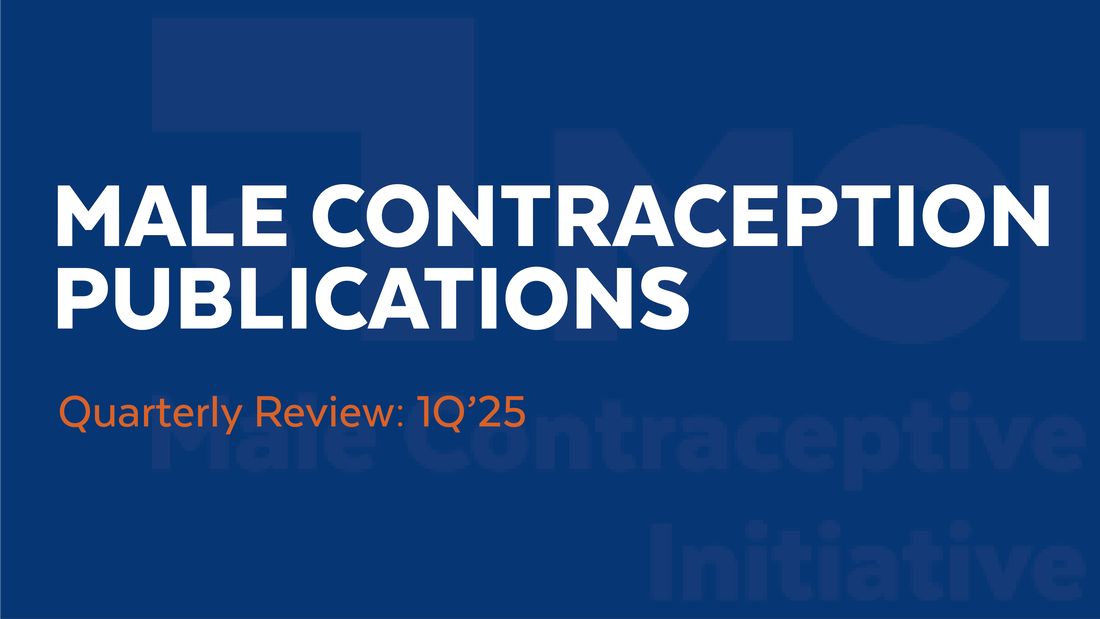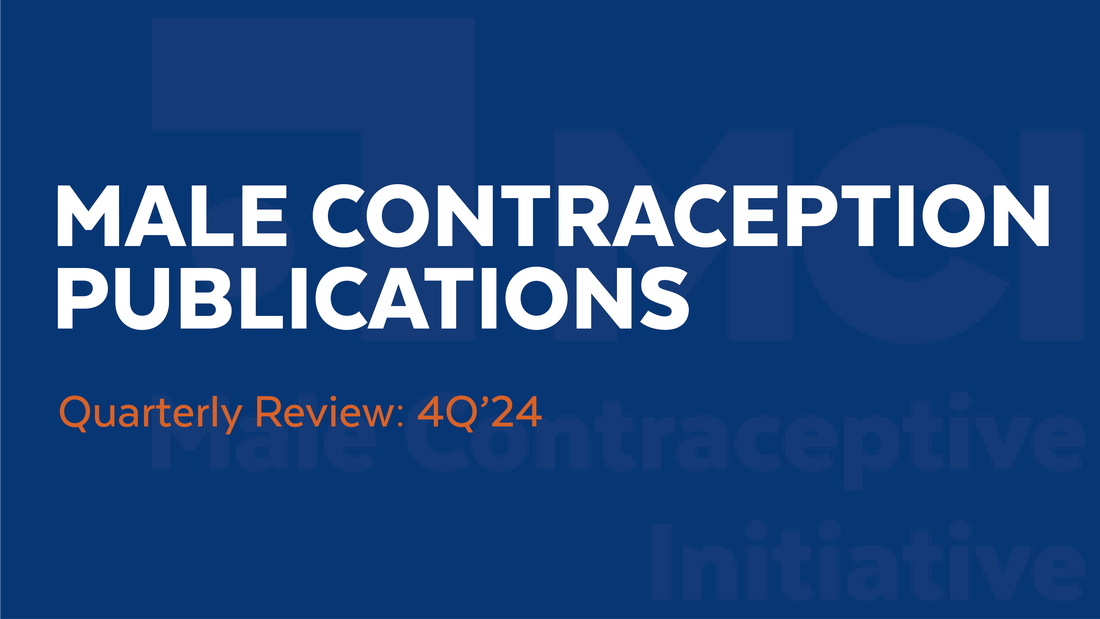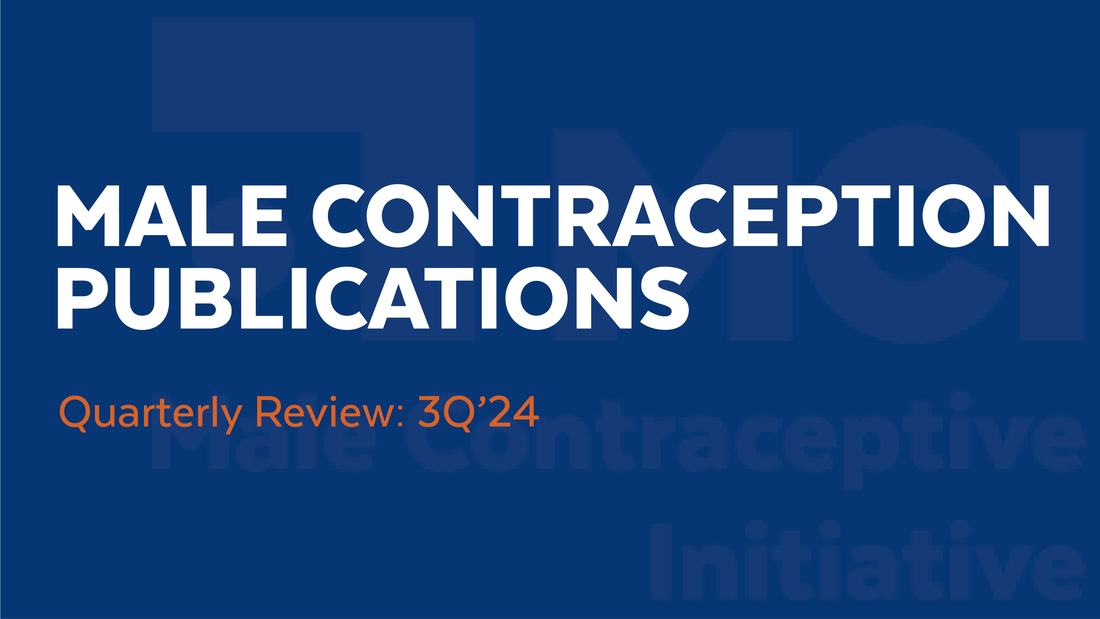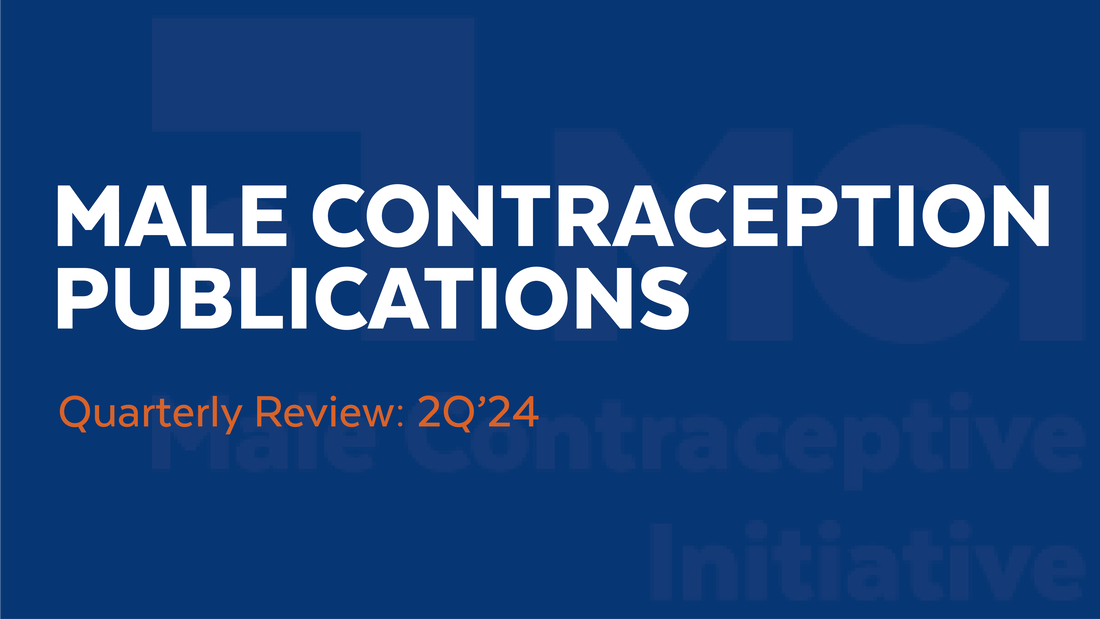|
Unintended pregnancies remain a persistent global health challenge, highlighting the critical need for more diverse contraceptive options for men. Currently, available choices are limited, with condoms and vasectomy serving as the primary options. Male Contraceptive Initiative (MCI) plays a vital role in addressing this need by funding research and advocating for safe, effective, and reversible contraceptive solutions for sperm-producing individuals. Our grantmaking strategy is evolving to optimize our impact in the field, as reflected in our 2025 Request for Applications (RFA).
0 Comments
I first became interested in birth control after I got a pulmonary embolism from my daily oral contraceptive in the fall of my freshman year. After that experience, I was intrigued by the effects of birth control and the various contraceptive mechanisms that were currently being researched, which was when I came across the Male Contraceptive Initiative. Having taken Mandarin since sixth grade, this project immediately appealed to me. I am currently pursuing a degree in Computational Biology and Comparative Literature with English and Chinese at Brown University, so this project was the intersection of my academic and personal interests: biology, Mandarin translation, and birth control.
This blog series highlights pertinent publications that were featured in MCI's monthly newsletter editions in the first quarter of 2025. The purpose of this blog is to report interesting or relevant work from MCI Fellows, Grantees, staff members, and other community authors in the field of male contraception.
The human reproductive system is a complex set of intertwining factors, many of which are required for sustained fertility. By interrupting even a single one of these required processes, we can find new ways to create exciting non-hormonal contraceptives for men. One process is the creation of sperm, or spermatogenesis.
(Image Source: Public Domain) We acknowledge that a person's sex and gender are two different things, as discussed here. Sex is defined as, "either of the two major forms of individuals that occur in many species and that are distinguished respectively as female or male, especially on the basis of their reproductive organs and structures."
In this article, we will be referring to "male" and "female" in reference to the scientific classification of a reproductive system and not a person's gender identity. (Image courtesy of Wumingbai) Ejaculation is the discharge of semen from the male reproductive tract as a result of an orgasm. It is the final stage and natural objective of male sexual stimulation, and an essential component of natural conception.
(Image courtesy of Corode) A condom is a barrier device used during sexual intercourse to reduce the probability of pregnancy or a sexually transmitted infection (STI), and there are versions for both male and female users. A barrier device, or barrier method, is something that helps prevent pregnancy by blocking sperm from reaching and subsequently fertilizing the egg.
When it comes to contraception and family planning, women and people with uteruses have historically shouldered most of the burden. From pills to IUDs, the majority of contraceptive methods have been designed with women in mind. However, there is a growing need for more male contraceptive options that are safe, effective, and easy to use.
Public health initiatives have long relied on vaccination campaigns to prevent the spread of infectious diseases, saving countless lives and improving global health. As the field of male contraception continues to evolve, there are valuable lessons to be learned from the success of vaccination campaigns—lessons that can be applied to the development, distribution, and acceptance of new male contraceptive methods.
This blog series highlights pertinent publications that were featured in MCI's monthly newsletter editions in the fourth quarter of 2024. The purpose of this blog is to report interesting or relevant work from MCI Fellows, Grantees, staff members, and other community authors in the field of male contraception.
MCI recently had the privilege of collaborating with World Vasectomy Day organization at a summit in Lusaka, Zambia. This event brought together a diverse group of medical students and healthcare providers, all united by a common goal: to emphasize the crucial role of men in family planning.
This blog series highlights pertinent publications that were featured in MCI's monthly newsletter editions in the third quarter of 2024. The purpose of this blog is to report interesting or relevant work from MCI Fellows, Grantees, staff members, and other community authors in the field of male contraception.
MCI's Youth Advisory Board (YAB) is a group of young people (16-28) providing their perspectives to our work and advocating for male contraception. It is a group of passionate young leaders involved in advising MCI’s staff on advocacy and research efforts, and peer educators and advocates for male contraception. In this blog post, several YAB members shared their thoughts on the importance of male contraception.
Vasectomy and condoms are the only current options for male contraception. The most popular form of long-acting male contraception is a vasectomy. Unfortunately, vasectomies are not considered truly reversible. Reversal of a vasectomy is often expensive, and requires a long surgery by a specialized provider.
As men progress through their reproductive journey, it's important to consider how their reproductive health needs change with age. Personas are fictional characters that are useful for understanding the thoughts, interests, and needs of a specific target audience. MCI is using personas to contextualize the lived experiences of potential users, beneficiaries, and intermediaries with regard to male contraception. In doing so, we hope to gain a greater understanding of how novel male contraceptive products can serve the evolving needs of sperm producers.
Upon entering the second half of their reproductive journey, sperm producers are faced with having to make a concrete decision with regard to their family planning goals. Everyone’s reproductive health needs change over time, however, the evolving needs of sperm producers have not been contextualized to the same degree as egg producers. MCI has begun using personas in their ideation activities, in order to understand how men’s reproductive interests, change with age. Personas are fictional representations of potential male contraceptive users, beneficiaries, and intermediaries. Personas are creative tools that are incorporated into user-centered design exercises and allow organizations to identify user preferences and guide new product designs.
As sperm producers grow older and progress through their reproductive journey, it becomes imperative to consider how their reproductive health needs change with age. Personas are fictional characters that are useful for understanding the thoughts, interests, and needs of a specific target audience. MCI is using personas to contextualize the lived experiences of potential users, beneficiaries, and intermediaries with regard to male contraception. In doing so, we hope to gain a greater understanding of how novel male contraceptive products can serve the evolving needs of sperm producers.
The future users of male contraception have a diverse range of needs, perspectives, and interests that are shaped by their own individual experiences. In order for male contraceptive researchers and advocates to better understand user perspectives, MCI has recently dedicated more attention to developing personas. Personas are fictional characters that are used to represent a certain type of user of a site, brand, or product. Personas are useful for understanding members of a specific type of market or target audience. Understanding the needs and interests of future male contraceptive users will aid in the development and rollout of new methods when they become available.
A persona is a fictional character created to represent a user type that might use a site, brand, or product in a similar way. They are incredibly useful tools in user-centered design, marketing, and other disciplines focusing on customers or “users”, and they are particularly useful during ideation activities for new products and services as they allow for the extrapolation of user preferences to inform attributes, thereby removing some of the ambiguity inherent in new product design.
Our most recent MCI Fellow Gimelly Bryant sat down with us to discuss her interest in male contraception and motivation in her work. This blog post shares highlights from that conversation.
Our most recent MCI Fellow Youmna Hashem sat down with us to discuss her interest in male contraception and motivation in her work. This blog post shares highlights from that conversation.
This blog series highlights pertinent publications that were featured in MCI's monthly newsletter editions in the second quarter of 2024. The purpose of this blog is to report interesting or relevant work from MCI Fellows, Grantees, staff members, and other community authors in the field of male contraception.
Celebrating Father’s Day allows us to honor both the journey of fatherhood as well as the role fathers play in children's lives. It's a day to appreciate the love, guidance, and support that fathers provide. But it’s also an opportunity to reflect on the evolving dynamics of family planning and the crucial role male contraception plays in empowering men to take control of their reproductive health and family planning decisions.
Reproductive aging is a natural process that impacts all people, yet it’s often surrounded by myths and misconceptions. As we age, our reproductive systems undergo significant changes that can impact fertility, hormonal balance, and overall health. Understanding these changes is crucial for making informed decisions about family planning and health management.
In the realm of reproductive health and family planning, women have long borne the lion's share of responsibility. From birth control pills to IUDs, the array of options available to women far exceeds those for men. However, the landscape is shifting, and the future of male contraception is bright, offering new hope for shared reproductive responsibility.
|
Categories
All
Archives
May 2025
|
© Male Contraceptive Initiative. All rights reserved.


























 RSS Feed
RSS Feed